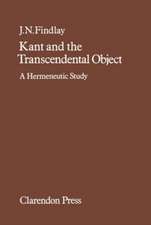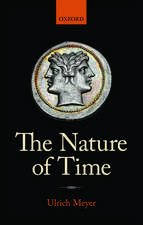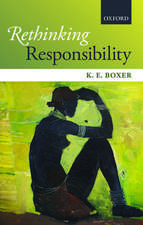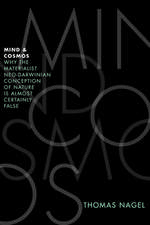Gilles Deleuze, Postcolonial Theory, and the Philosophy of Limit: Suspensions: Contemporary Middle Eastern and Islamicate Thought
Autor Réda Bensmaïaen Limba Engleză Paperback – 22 feb 2017
| Toate formatele și edițiile | Preț | Express |
|---|---|---|
| Paperback (1) | 171.39 lei 6-8 săpt. | |
| Bloomsbury Publishing – 22 feb 2017 | 171.39 lei 6-8 săpt. | |
| Hardback (1) | 538.36 lei 6-8 săpt. | |
| Bloomsbury Publishing – 22 feb 2017 | 538.36 lei 6-8 săpt. |
Din seria Suspensions: Contemporary Middle Eastern and Islamicate Thought
- 28%
 Preț: 405.76 lei
Preț: 405.76 lei - 22%
 Preț: 237.28 lei
Preț: 237.28 lei - 23%
 Preț: 172.99 lei
Preț: 172.99 lei - 12%
 Preț: 216.16 lei
Preț: 216.16 lei - 30%
 Preț: 567.99 lei
Preț: 567.99 lei - 22%
 Preț: 256.20 lei
Preț: 256.20 lei - 13%
 Preț: 257.50 lei
Preț: 257.50 lei - 22%
 Preț: 256.85 lei
Preț: 256.85 lei - 13%
 Preț: 229.05 lei
Preț: 229.05 lei - 13%
 Preț: 257.50 lei
Preț: 257.50 lei - 13%
 Preț: 238.76 lei
Preț: 238.76 lei - 13%
 Preț: 257.97 lei
Preț: 257.97 lei - 22%
 Preț: 231.81 lei
Preț: 231.81 lei - 22%
 Preț: 224.21 lei
Preț: 224.21 lei - 23%
 Preț: 198.12 lei
Preț: 198.12 lei - 23%
 Preț: 198.68 lei
Preț: 198.68 lei - 24%
 Preț: 188.82 lei
Preț: 188.82 lei
Preț: 171.39 lei
Preț vechi: 223.49 lei
-23% Nou
Puncte Express: 257
Preț estimativ în valută:
32.79€ • 34.24$ • 27.08£
32.79€ • 34.24$ • 27.08£
Carte tipărită la comandă
Livrare economică 16-30 aprilie
Preluare comenzi: 021 569.72.76
Specificații
ISBN-13: 9781350004399
ISBN-10: 1350004391
Pagini: 192
Dimensiuni: 156 x 234 mm
Greutate: 0.3 kg
Editura: Bloomsbury Publishing
Colecția Bloomsbury Academic
Seria Suspensions: Contemporary Middle Eastern and Islamicate Thought
Locul publicării:London, United Kingdom
ISBN-10: 1350004391
Pagini: 192
Dimensiuni: 156 x 234 mm
Greutate: 0.3 kg
Editura: Bloomsbury Publishing
Colecția Bloomsbury Academic
Seria Suspensions: Contemporary Middle Eastern and Islamicate Thought
Locul publicării:London, United Kingdom
Caracteristici
The author, Réda Bensmaïa, is an internationally recognized expert on both Post-Colonial thought and and the work of Gilles Deleuze
Notă biografică
Réda Bensmaïa is Professor Emeritus, Formerly University Professor of French and Francophone Literature, in the Department of French Studies and the Department of Comparative Literature at Brown University, USA. He has published extensively on French and Francophone literature of the 20th century as well as on film theory and contemporary philosophy.
Cuprins
Series ForewordAcknowledgementsPreface: Gilles Deleuze and How to Become a Stalker in Philosophy1. Postcolonial Haecceities: On Deleuze's Names2. The Subject of Art: Prolegomena to a Future Deleuzian Aesthetics3. Cinéplastique(s): Deleuze on Élie Faure and Film Theory4. On the "Spiritual Automaton," or Space and Time in Modern Cinema According to Gilles Deleuze5. The Singularity of the Event: Gilles Deleuze, Paul Virilio, François Jullien6. The Kafka-Effect: Considerations on the Limits of Interpretation in Deleuze and Guattari's Book on Kafka7. On the Concept of 'Minor Literature': From Kafka to Kateb Yacine8. Becoming-Animal, Becoming-Political in Rachid Boudjedra's L'Escargot EntêtéNotesBibliographyIndex
Recenzii
How to think the "postcolonial" with Deleuze? With reference to key concepts such as haecceities, audiovisuality, the event, minor literature, and becoming-animal, Réda Bensmaïa offers a series of thought-provoking answers to this dynamic question. At once rigorous and open-minded, and attuned to debates in philosophy, film theory, literature, art, and geopolitics, this book is a tribute to Deleuzean discourse at its best.
For many years now, Réda Bensmaïa has been an important voice in the study of Gilles Deleuze, one of the most important philosophers of the late 20th century. This volume is a remarkable experiment, bringing Deleuze's thought into that other territory which Bensmaïa has so impressively travelled, postcolonial theory. Bensmaïa shows how Deleuze's philosophical and political cartography can be used to chart paths through postcolonial theory, demonstrating that any attempt to think through the questions raised by postcolonial theory will have to take at least some of its bearings using Deleuze's writings.
The encounter between Deleuze's thought and postcolonial theory takes place as an event of perpetual infraction. For how can one apply a body of thought predicated on a rigorous thinking of the limit? The question lies at the heart of this luminous book by a true "pilgrim" of Deleuze's thought. Bensmaïa's account of Deleuze's work as "the philosophy of limit" avoids the anxiety and bad conscience that haunt every approach to Deleuze in the expository mode. The result is an extraordinary work whose impact will be felt far beyond its own disciplinary limits.
This superb book explores the haecceity that results when the multiple names of Deleuze encounter the postcolonial writers of the Maghreb. In his inimitable style, Réda Bensmaïa explores how Deleuze's concepts make it possible to orient the thought, the aesthetic sensibility, and the politics of the postcolony in completely new directions. Here is Deleuze 'developed from below' in relation to the minor literature of Francophone Algeria. Rather than seeking to capture and unify the multiple names of Deleuze - instead of interpreting a system of Deleuzian philosophy and applying its concepts to the postcolony - Bensmaïa reveals the liberatory potential of the extraordinary machine of expression that Deleuzian philosophy sets in motion.
Réda Bensmaïa is an outstanding reader of Deleuze who always enriches our understanding of the concepts whose contours he traces. He stages novel encounters between Deleuze's texts and other arts, other thinkers. These rich and rewarding essays are essential reading for anyone interested in Deleuze, postcolonial theory and North African literatures.
For many years now, Réda Bensmaïa has been an important voice in the study of Gilles Deleuze, one of the most important philosophers of the late 20th century. This volume is a remarkable experiment, bringing Deleuze's thought into that other territory which Bensmaïa has so impressively travelled, postcolonial theory. Bensmaïa shows how Deleuze's philosophical and political cartography can be used to chart paths through postcolonial theory, demonstrating that any attempt to think through the questions raised by postcolonial theory will have to take at least some of its bearings using Deleuze's writings.
The encounter between Deleuze's thought and postcolonial theory takes place as an event of perpetual infraction. For how can one apply a body of thought predicated on a rigorous thinking of the limit? The question lies at the heart of this luminous book by a true "pilgrim" of Deleuze's thought. Bensmaïa's account of Deleuze's work as "the philosophy of limit" avoids the anxiety and bad conscience that haunt every approach to Deleuze in the expository mode. The result is an extraordinary work whose impact will be felt far beyond its own disciplinary limits.
This superb book explores the haecceity that results when the multiple names of Deleuze encounter the postcolonial writers of the Maghreb. In his inimitable style, Réda Bensmaïa explores how Deleuze's concepts make it possible to orient the thought, the aesthetic sensibility, and the politics of the postcolony in completely new directions. Here is Deleuze 'developed from below' in relation to the minor literature of Francophone Algeria. Rather than seeking to capture and unify the multiple names of Deleuze - instead of interpreting a system of Deleuzian philosophy and applying its concepts to the postcolony - Bensmaïa reveals the liberatory potential of the extraordinary machine of expression that Deleuzian philosophy sets in motion.
Réda Bensmaïa is an outstanding reader of Deleuze who always enriches our understanding of the concepts whose contours he traces. He stages novel encounters between Deleuze's texts and other arts, other thinkers. These rich and rewarding essays are essential reading for anyone interested in Deleuze, postcolonial theory and North African literatures.

















